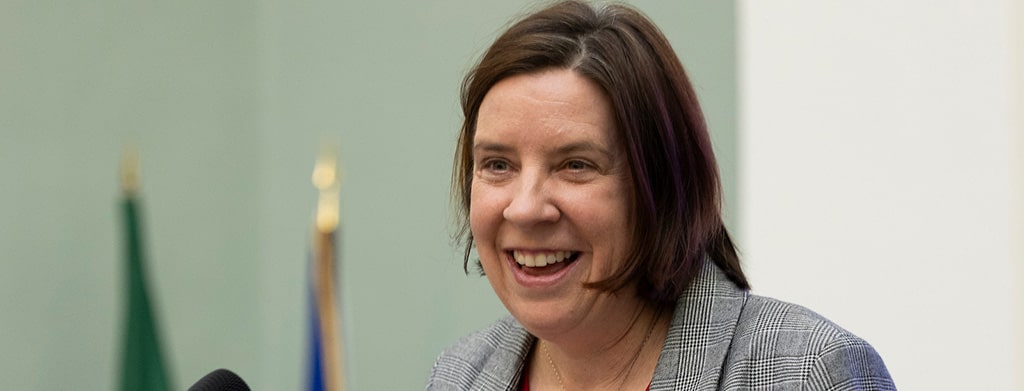
DPP defends policy on access to decisions
The Director of Public Prosecutions (DPP) has said that there are “good policy reasons” why the public does not get access to the evidence and reasoning underlining the office’s decisions not to prosecute cases.
Catherine Pierse was speaking at the Annual Prosecutors’ Conference in Dublin at the weekend.
She told the event that it was important that the public knew that, when engaging with the criminal justice system, information was received and retained in confidence by the Office of the DPP, “and will not be discussed or disclosed except for the purpose for which it was provided”.
Individual cases
In cases where the office made a decision not to prosecute, she said, victims were entitled to reasons and to a review of that decision.
Describing the principle of innocence until proven guilty as “a cornerstone” of all criminal-justice systems committed to the rule of law, the DPP said that this principle must be protected where decisions were made not to prosecute, as well as where decisions were made to prosecute.
“For these reasons, as director, I do not comment publicly on individual cases,” she stated.
The DPP stressed, however, that the concept of her office’s ‘independence’ needed to be “constantly held up to the light, to make sure that it does not mean immunity from public scrutiny”.
“We participate in a wide range of working groups, where we listen to the questions of colleagues from the NGO sector and our criminal-justice partners, explain our work, and learn from the feedback of our stakeholders,” Pierse told the conference.
Clarity on disclosure
The DPP also commented on a recent Supreme Court ruling that she said had brought more clarity to the obligations of all parties on disclosure:
“The judgment rejects the notion that disclosure of counselling notes in sexual-offence cases is required on the basis that material is remotely or potentially relevant.
“[DPP v WC] also makes clear that issues involving serious intrusion into private life are not generally subject to disclosure unless directly germane to an issue in the case.”
The DPP said that it was now up to the prosecution service to “operationalise” WC and ensure that it continued to fulfil the fair trial rights of suspects, while also ensuring the privacy rights of victims and other third parties.
Courts activity
In her address, the DPP also highlighted the big increase in activity in the courts in recent years, citing a 149% increase in the number of court dates in the Central Criminal Court from 2019 to 2023.
Sitting dates in the Dublin Circuit Criminal Court had also increased by 24% over the same period, she added.
The DPP said that the level of Central Criminal cases outside of Dublin presented “a particular challenge” as, historically, this court sat only in Dublin.
In 2019, 127 court dates in the Central Criminal Court were held outside Dublin. At the end of 2023, this figure had risen to 517 – a 407% increase over the 2019-2023 period.